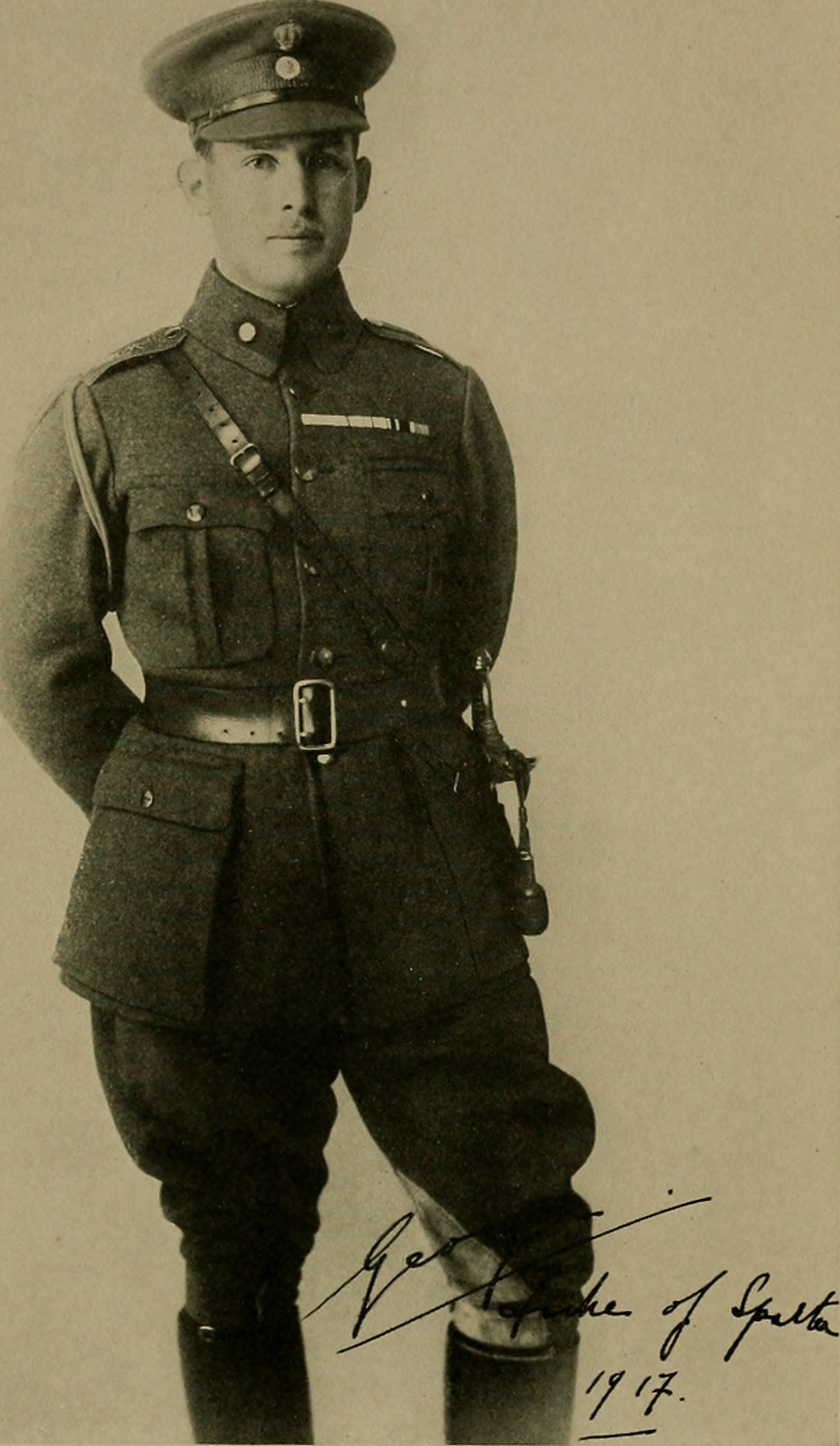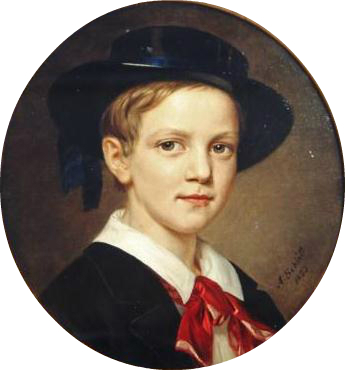|
Duke Of Sparta
Duke of Sparta (Katharevousa: , Demotic Greek: Δούκας της Σπάρτης) was a title instituted in 1868 to designate the Crown Prince of the Kingdom of Greece. Its legal status was exceptional, as the Constitution of Greece forbade the award or acceptance of titles of nobility for Greek citizens. Consequently, it was mostly used abroad, and only occasionally and unofficially within Greece. The birth of Crown Prince Constantine (later king as Constantine I) on 21 July/2 August 1868 was widely celebrated in Greece, especially as the heir-apparent's name resonated with the Byzantine imperial tradition and the irredentist aspirations enshrined in the "''Megali Idea''". As a result, on the day of the Crown Prince's baptism on 22 August/3 September, at the initiative of the Prime Minister Dimitrios Voulgaris, his father, King George I, issued a decree according to which Constantine, as well as any future heir to the Greek crown, would bear the title "Duke of Sparta". However, ... [...More Info...] [...Related Items...] OR: [Wikipedia] [Google] [Baidu] |
George I Of Greece
George I ( Greek: Γεώργιος Α΄, ''Geórgios I''; 24 December 1845 – 18 March 1913) was King of Greece from 30 March 1863 until his assassination in 1913. Originally a Danish prince, he was born in Copenhagen, and seemed destined for a career in the Royal Danish Navy. He was only 17 years old when he was elected king by the Greek National Assembly, which had deposed the unpopular Otto. His nomination was both suggested and supported by the Great Powers: the United Kingdom of Great Britain and Ireland, the Second French Empire and the Russian Empire. He married Grand Duchess Olga Constantinovna of Russia in 1867, and became the first monarch of a new Greek dynasty. Two of his sisters, Alexandra and Dagmar, married into the British and Russian royal families. Edward VII of the United Kingdom and Alexander III of Russia were his brothers-in-law, and George V of the United Kingdom, Christian X of Denmark, Haakon VII of Norway, and Nicholas II of Russia were his nephew ... [...More Info...] [...Related Items...] OR: [Wikipedia] [Google] [Baidu] |
Dukedoms
Dukedom may refer to: * The title and office of a duke * Duchy, the territory ruled by a duke * Dukedom, Kentucky and Tennessee Dukedom is an unincorporated community in both Graves County, Kentucky and Weakley County, Tennessee, straddling the state line in the western part of both states. The location is ; The elevation is 487 feet above sea level. The community is nota ..., United States * ''Dukedom'' (game), a land management game See also * Lists of dukedoms {{disambig ... [...More Info...] [...Related Items...] OR: [Wikipedia] [Google] [Baidu] |
Heirs To The Throne
Inheritance is the practice of receiving private property, titles, debts, entitlements, privileges, rights, and obligations upon the death of an individual. The rules of inheritance differ among societies and have changed over time. Officially bequeathing private property and/or debts can be performed by a testator via will, as attested by a notary or by other lawful means. Terminology In law, an ''heir'' is a person who is entitled to receive a share of the deceased's (the person who died) property, subject to the rules of inheritance in the jurisdiction of which the deceased was a citizen or where the deceased (decedent) died or owned property at the time of death. The inheritance may be either under the terms of a will or by intestate laws if the deceased had no will. However, the will must comply with the laws of the jurisdiction at the time it was created or it will be declared invalid (for example, some states do not recognise handwritten wills as valid, or only in sp ... [...More Info...] [...Related Items...] OR: [Wikipedia] [Google] [Baidu] |
List Of Heirs To The Greek Throne
The list includes all individuals who were first in line to the Monarchy of Greece, throne of Greece, either as heir apparent or as heir presumptive, since 1832 (cf. Crown Prince of Greece). Those who actually succeeded to the throne are shown in bold. Heir to the throne (House of Wittelsbach) Heir to the throne (House of Glücksburg) See also * Duke of Sparta References {{Reflist Greek monarchy Heirs to the throne, Greece Lists of heirs, Greece Lists of princes ... [...More Info...] [...Related Items...] OR: [Wikipedia] [Google] [Baidu] |
Diadochus (other)
Diodochus is the Latinized form of diadochos ( gr, διάδοχος, “heir, successor”). It can refer to: ;Personal name * Marcus Diadochus, 4th-century Christian writer * Diadochos of Photiki, 5th-century Christian saint * Proclus Diadochus, 5th-century Neoplatonic philosopher ;Scientific names * ''Marginella diadochus'', a species of Marginellid sea snail * Diadochite, a mineral * Diadochokinesia, the ability to make antagonistic movements in quick succession * Dysdiadokokinesia and adiadokokinesia, the medical terms for impaired or absent ability to make rapid alternating movements ;Other * Diadochi, successors of Alexander the Great ** Wars of the Diadochi * Diadochoupolis, a city in Mesopotamia * Diadochos, the title of the Crown Prince of Greece See also * Successor (other) Successor may refer to: * An entity that comes after another (see Succession (other)) Film and TV * ''The Successor'' (film), a 1996 film including Laura Girling * ''The ... [...More Info...] [...Related Items...] OR: [Wikipedia] [Google] [Baidu] |
Timoleon Filimon
Timoleon Filimon ( el, Τιμολέων Φιλήμων 1833 – 7 March 1898) was a Greek journalist, politician, intellectual and tutor of King George I. He was one of the founding members of the Historical and Ethnological Society of Greece.National Historical Museum of Greece: The Society. Biography Studies and early career He was born in 1833 in n, son of the publisher, writer and member of the Philiki Etaireia (Society of Friends) . He studied law at the |
Hellenic Parliament
The Hellenic Parliament ( el, Ελληνικό Κοινοβούλιο, Elliniko Kinovoulio; formally titled el, Βουλή των Ελλήνων, Voulí ton Ellínon, Boule (ancient Greece), Boule of the Greeks, Hellenes, label=none), also known as the Parliament of the Hellenes, the Hellenic Bouleterion or Greek Parliament, is the Unicameralism, unicameral legislature of Greece, located in the Old Royal Palace, overlooking Syntagma Square in Athens. The parliament is the supreme democratic institution that represents the citizens through an elected body of Members of Parliament (MPs). It is a Unicameralism, unicameral legislature of 300 members, elected for a four-year term. In 1844–1863 and 1927–1935, the parliament was Bicameralism, bicameral with an upper house (the Greek Senate, senate) and a lower house (the chamber of deputies), which retained the name . Several important Greek statesmen have served as the speaker of the Hellenic Parliament. History Constitutiona ... [...More Info...] [...Related Items...] OR: [Wikipedia] [Google] [Baidu] |
Greek War Of Independence
The Greek War of Independence, also known as the Greek Revolution or the Greek Revolution of 1821, was a successful war of independence by Greek revolutionaries against the Ottoman Empire between 1821 and 1829. The Greeks were later assisted by the British Empire, Bourbon Restoration in France, Kingdom of France, and the Russian Empire, while the Ottomans were aided by their North African vassals, particularly the eyalet of Egypt Eyalet, Egypt. The war led to the formation of modern Greece. The revolution is Celebration of the Greek Revolution, celebrated by Greeks around the world as Greek Independence Day, independence day on 25 March. Greece, with the exception of the Ionian Islands, came under Ottoman rule in the 15th century, in the decades before and after the fall of Constantinople. During the following centuries, there were sporadic but unsuccessful Ottoman Greece#Uprisings before 1821, Greek uprisings against Ottoman rule. In 1814, a secret organization called Filiki Et ... [...More Info...] [...Related Items...] OR: [Wikipedia] [Google] [Baidu] |
Dimitrios Voulgaris
Dimitrios Voulgaris ( el, Δημήτριος Βούλγαρης; 20 December 1802 – 10 January 1877) was a Greek revolutionary fighter during the Greek War of Independence of 1821 who became a politician after independence. He was nicknamed "Tsoumpes" (" Τσουμπές") after the distinctive Ottoman-style robe he wore. Biography Voulgaris was an Arvanite, born on December 20th 1802 on the island of Hydra in the Saronic Islands. When the War of Independence broke out, he participated in naval operations against the forces of the Ottoman Empire. After independence was achieved, Voulgaris became involved in politics as a bitter opponent of Governor Ioannis Kapodistrias. In 1843, Voulgaris was appointed to the newly created Senate and in 1847, he became Minister for the Navy. He became the 11th Prime Minister for the first time in 1855 during the Crimean War. He was elected to the post again in elections marked by widespread corruption and fraud. Voulgaris was involved i ... [...More Info...] [...Related Items...] OR: [Wikipedia] [Google] [Baidu] |
Katharevousa
Katharevousa ( el, Καθαρεύουσα, , literally "purifying anguage) is a conservative form of the Modern Greek language conceived in the late 18th century as both a literary language and a compromise between Ancient Greek and the contemporary vernacular, Demotic Greek. Originally, it was widely used for both literary and official purposes, though sparingly in daily language. In the 20th century, it was increasingly adopted for official and formal purposes, until minister of education Georgios Rallis made Demotic Greek the official language of Greece in 1976, and in 1982 Prime Minister Andreas Papandreou abolished the polytonic system of writing for both Demotic and Katharevousa. Katharevousa was conceived by the intellectual and revolutionary leader Adamantios Korais (1748–1833). A graduate of the University of Montpellier, Korais spent most of his life as an expatriate in Paris. As a classical scholar credited with both laying the foundations of Modern Greek literature a ... [...More Info...] [...Related Items...] OR: [Wikipedia] [Google] [Baidu] |
Megali Idea
The Megali Idea ( el, Μεγάλη Ιδέα, Megáli Idéa, Great Idea) is a nationalist and irredentist concept that expresses the goal of reviving the Byzantine Empire, by establishing a Greek state, which would include the large Greek populations that were still under Ottoman rule after the end of the Greek War of Independence (1821–1828) and all the regions that had large Greek populations (parts of the Southern Balkans, Asia Minor and Cyprus). The term appeared for the first time during the debates of Prime Minister Ioannis Kolettis with King Otto that preceded the promulgation of the 1844 constitution.''History of Greece'' Encyclopædia Britannica Online It came to dominate foreign relations and played a significant role in domestic politics for much of the first century of Greek independence. ... [...More Info...] [...Related Items...] OR: [Wikipedia] [Google] [Baidu] |




